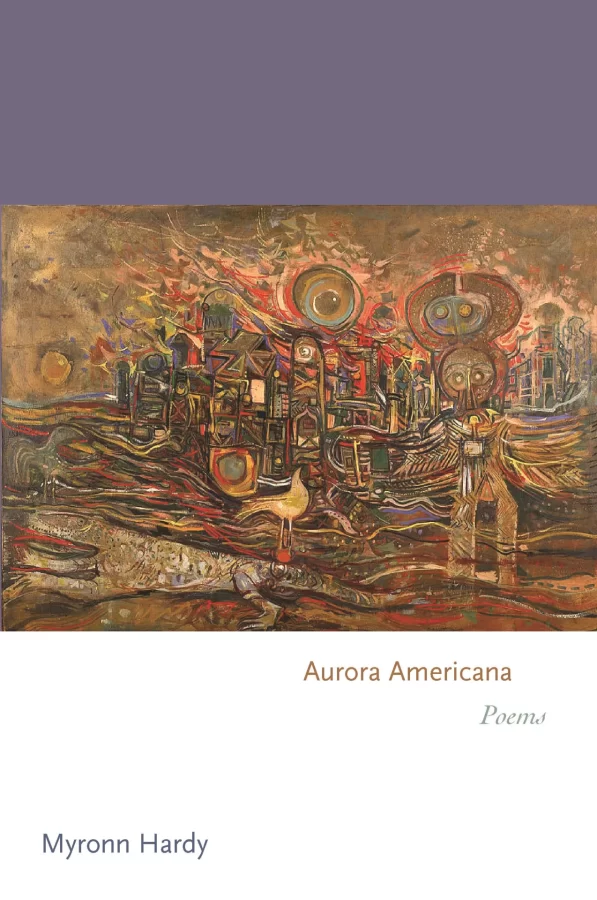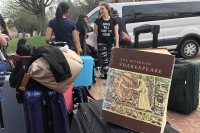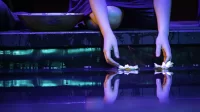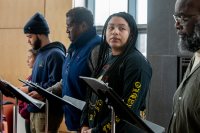
When Assistant Professor of English Myronn Hardy moved back to the U.S. in 2018 after nearly a decade living in Morocco, the poet found North America both recognizable and unrecognizable.
In the years since, he’s written a series of poems that speak to that experience of exile and return. The collection that stemmed from that time of transition, Aurora Americana, is being published by Princeton University Press on Oct. 10 as part of the Princeton Series of Contemporary Poets.
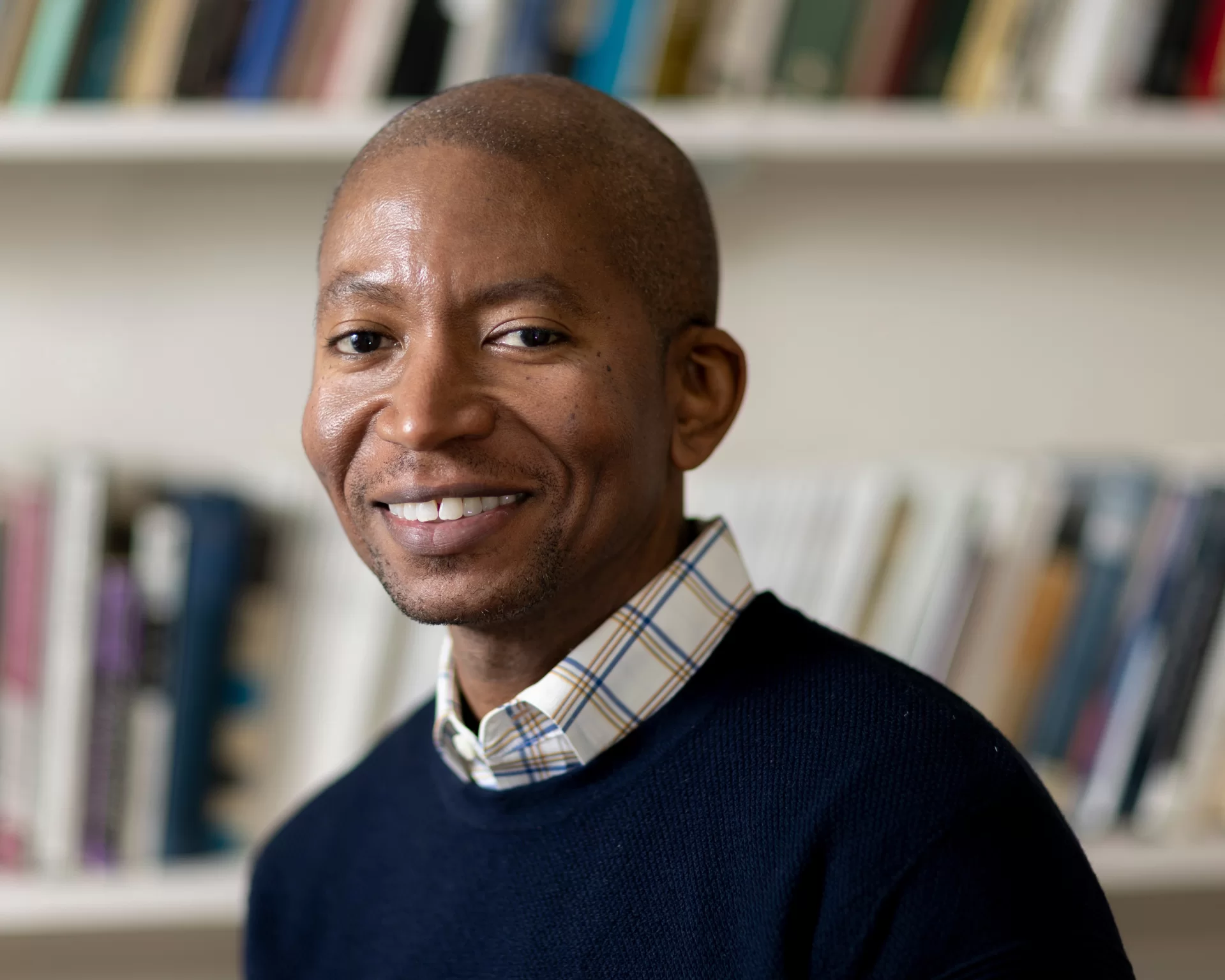
The poems in this collection are all set around the same time of day, at or near dawn. “Aurora Americana explores an ominous yet hopeful new morning in America, one in which potential cataclysm exists alongside possibility and change,” the university press notes.
Hardy, who works in varied poetic forms, including the sonnet, the triolet, and the ghazal, which has its origins in seventh-century Arabic poetry, recently told the literary journal The Rumpus he’s never centered temporality this way.
Hardy to Read from Aurora American
Here on the Bates campus, Hardy will read from Aurora Americana at Gomes Chapel at 7 p.m. on Oct. 11.
“This is very new for me. Also, of course, there is the metaphor of ‘dawn’ that I hope the poems interrogate,” he said. “What does it mean to be on the cusp of something? Are we on the verge of evolution or devolution?”
Speaking of his process to The Rumpus, Hardy described the inception of his poetry as an image or images. “I see something I can’t shake,” he said. “The image remains in my mind. I dream about it. I wait for that particular image to morph, a subtle change in color or a repositioning. When that happens, I know I’m in the process and nearing the page.”
Then, Hardy “wait(s) for the music: the sound of a leaf sliding on asphalt, a river flowing over jagged rocks, etc. This is usually the sound I’m trying to emulate in the poem. When this is clear, the language arrives in a line, sentence, stanza. The poem is in motion. I wake up before the sun emerges and write as its light covers the page.”
At Bates, Hardy’s courses include “The Aesthetics of Seeing: Poetry as Witness,” which looks at poetry that has been profoundly influenced by poets’ lived experiences as witnesses.
He also teaches creative nonfiction, advanced poetry writing, and “‘I, Too, Sing America’: Poetry of This Moment/Movement,” analyzing the work of contemporary poets responding to the current social and political moment in the U.S.
Aurora Americana is the second book of Hardy’s poetry to be published by Princeton. The first, Radioactive Starlings, came out in 2017. His other works include Approaching the Center, The Headless Saints, Catastrophic Bliss, and Kingdom.
His poems have appeared in the New York Times Magazine, Ploughshares, the Portland Press Herald and the Michigan Quarterly Review, among others. He has received several awards, including the PEN Oakland–Josephine Miles Award.
